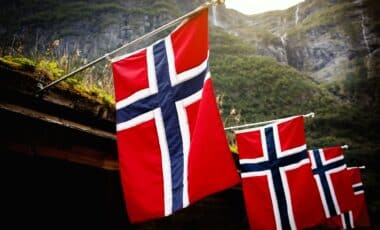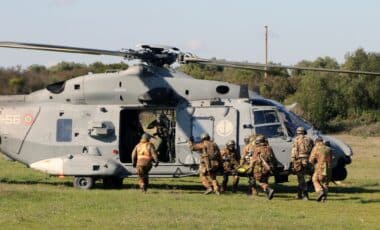DESPITE BRAVE AND HEROIC ALLIED RESISTANCE, JAPANESE “TIGERS” EASILY OVERRAN THEDUTCH EAST INDIES IN THREE MONTHS – SPECIFICALLY, MALAYA AND SINGAPORE IN 79 DAYS.THEN, FACING IMPOSSIBLE ODDS, FEW SURVIVED CAPTURE, TORTURE, AND STARVATIONTWO NEW CASEMATE BOOKS VIVIDLY PRESENT THEIR EYE-WITNESSACCOUNTSRevived and highly recommended by Don DeNeviIn short, two absolute must-reads for those who must know what it was like for civilians andthe military to be captured and made prisoners of war in hot and steaming Malaya are,“WOMEN INTERNED IN WORLD WAR TWO SUMATRA – Faith, Hope and Survival”, by BarbaraCoombes. Pen & Sword HISTORY, distributed by Casemate Publishers: 2022, 244 pages, hc,$42.95. Visit: www.penandswordbooks.com, or, E-mail, Uspen-
[email protected]
“CAPTURED AT SINGAPORE – A Diary of a Far East Prisoner of War”, by Jill Robertson & JanSlimming, Foreword by Terry Waite. Pen & Sword MILITARY, distributed by CasematePublishers: 2022, 276 pages, hc, $42.95. Visit: www.penandswordbooks.com, or, E-mail, Uspen-
[email protected]
No one questions that the shocking and insufferable defeats of the British Army in Sumatra (37days after Pearl Harbor, surrender on Feb. 14 th ) and Singapore `(38 days, on Feb. 15) wereGreat Britain’s gravest war humiliations. After all, the Japanese planned a minimum six-months of campaigns to occupy the oil-rich islands of the Dutch East Indies. Surprised by theirstunning victories after only two, the officers wound-up giggling. Captured Allied civilianswound up weeping over the uncertainty that faced them. For the Allied military, beingembarrassed was beyond embarrassment.Thousands of women and children were among those who struggled to leave Singapore justbefore the capitulation. Their hope for survival was to reach any Allied-held-island, preferablyAustralia or New Zealand. For many on their way to what they believed was safety, the hopewas unrealized. Countless drowned when their ships were bombed. Those who survived theJapanese massacre of the ships soon be became the “guests” of the feared enemy, and, of
those, most would not live to see Japan defeated. This fabulous read deals with two very
different women fleeing on those last ships and subsequently taken prisoners and interned onSumatra. Thus, Margaret Dryburgh, a missionary and teacher, and Shelagh Brown, a secretaryat the Singapore Naval Base became fast friends. Their paths crossed briefly prior to the tragicevents of early 1942, then again in the internment camp. Margaret composed and sang thelegendary POW song “The Captives Hymn” at all the camp services. Today, it is still sung atservices the world over. Music and faith were fundamental to both Margaret and Shelagh lives,lifting the spirits who heard them on those dark and difficult days when death hovered overall,especially if the whim of the camp commander came into play. They produced a “VocalOrchestra” using women’s voices in places of instruments. The effect riveted all including theJapanese guards, and many of the officers, if they dared admit it. No one had ever heard ofsuch soft and beautiful music, an orchestra of fellow prisoner voices “. . .freeing them to floathome to their families”, as one nurse put it.Readers will certainly pause to wipe away a tear or two since this extraordinary story is true.And no one can tell it better than Barbara Coombes, already a legend among young women,and men, at both at Chichester College of Further Education and London MetropolitanUniversity, her passion being Women’s History. Barbara discovered the story, has been writingabout it, and continues to research for publication the interments of women in the Far East.Hopefully, she and Pen & Sword, realized the truly heartfelt gift they have given seriousscholars and researchers, and us ordinary buffs who love such heroic women as Margaret andShelagh, and, if I might add, Barbara herself.Now, reader, be sure and follow Barbara’s wonderful story with yet another from Pen & Sword,“Captured at Singapore – A Diary of a Far East Prisoner of War”. In 1940, Londoner StanleyMoore became Driver T/170638 and trained for desert warfare along many others in the BritishArmy’s 18 th Division. But in an official change of plans and destination, he and his fellowservicemen became “sacrificial lambs” on a continent much farther from home.After months at sea, and several unexpected ports of call, Stan’s convoy was redirected to theother side of the world as the Japanese rampaged across Manchuria, Hong Kong and otherparts of Asia. The British Government never believed Japan had the moxie to attack theirPrize territory and so left Singapore to fight for itself with a handful of troops and outdatedequipment. But after Pearl Harbor, the undertrained and underequipped 18 th Division wasredirected to fight the Japanese. Using extensive research and personal documents, theauthors’ account via their father’s small, faded diary and his 1990 tape recording made in 1990Tells of dad’s journey and arrival in Keppel Harbor under shell fire, the terrible 17-day battle todefend the island, the Japanese Admonition and the harrowing forced labor conditions aftercapitulation.Only a small percentage of the 85,000 British troops returned after the war. Captivity and yearsof trauma ultimately stole years of the young soldiers’ lives, which they were later ordered toforget by the British government. The aim of this work is to provide information for futuregenerations to understand how ordinary men died under monstrous conditions of war, and
how the lucky survived.








